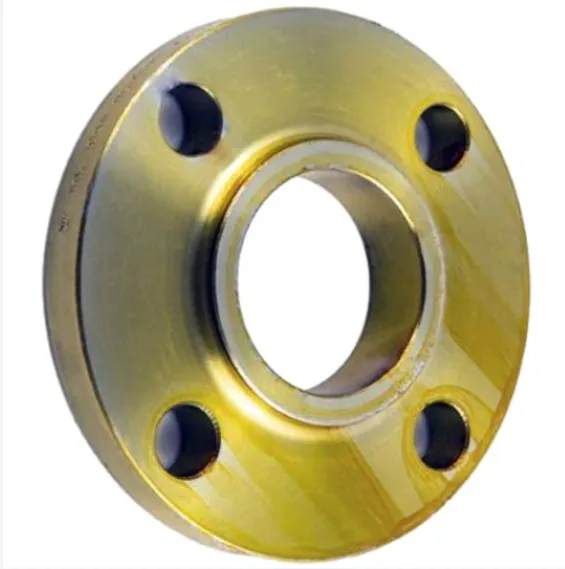-
Cangzhou Yulong Steel Co., Ltd.
-
Phone:
+86 13303177267 -
Email:
admin@ylsteelfittings.com
- English
- Arabic
- Italian
- Spanish
- Portuguese
- German
- kazakh
- Persian
- Greek
- French
- Russian
- Polish
- Thai
- Indonesian
- Vietnamese
- Zulu
- Korean
- Uzbek
- Hindi
- Serbian
- Malay
- Ukrainian
- Gujarati
- Haitian Creole
- hausa
- hawaiian
- Hebrew
- Miao
- Hungarian
- Icelandic
- igbo
- irish
- Japanese
- Javanese
- Kannada
- Khmer
- Rwandese
- Afrikaans
- Albanian
- Amharic
- Armenian
- Azerbaijani
- Basque
- Belarusian
- Bengali
- Bosnian
- Bulgarian
- Catalan
- Cebuano
- China
- China (Taiwan)
- Corsican
- Croatian
- Czech
- Danish
- Esperanto
- Estonian
- Finnish
- Frisian
- Galician
- Georgian
- Kurdish
- Kyrgyz
- Lao
- Latin
- Latvian
- Lithuanian
- Luxembourgish
- Macedonian
- Malgashi
- Malayalam
- Maltese
- Maori
- Marathi
- Mongolian
- Myanmar
- Nepali
- Norwegian
- Norwegian
- Occitan
- Pashto
- Dutch
- Punjabi
- Romanian
- Samoan
- Scottish Gaelic
- Sesotho
- Shona
- Sindhi
- Sinhala
- Slovak
- Slovenian
- Somali
- Sundanese
- Swahili
- Swedish
- Tagalog
- Tajik
- Tamil
- Tatar
- Telugu
- Turkish
- Turkmen
- Urdu
- Uighur
- Welsh
- Bantu
- Yiddish
- Yoruba

Apr . 23, 2025 13:20 Back to list
Key Benefits of ANSI 150P Slip-On Flanges in Chemical and Food Processing
In industries where safety, durability, and hygiene are non-negotiable, the choice of piping components can make or break operational efficiency. ANSI 150P slip-on flanges stand out as a cornerstone of reliable piping systems, particularly in chemical and food processing applications. These flanges, designed to meet ANSI 150 flange standards, offer a blend of precision engineering and material resilience that addresses the unique challenges of these sectors. Below, we explore why Class 150 flange systems, especially slip-on flange ANSI 150 variants, are indispensable for modern industrial infrastructure.

Why ANSI 150 Flanges Excel in Demanding Environments
The ANSI flange standard, governed by ASME B16.5 specifications, ensures uniformity and compatibility across global industrial systems. ANSI 150 flanges are engineered to withstand pressures up to 150 psi at ambient temperatures, making them ideal for low-to-medium pressure applications. Their design simplicity and robust construction make them a preferred choice for industries requiring frequent maintenance or system modifications.
Superior Material Compatibility of ANSI 150 Flanges for Harsh Conditions
Slip-on flange ANSI 150 units are often fabricated from stainless steel (e.g., SS304 or SS316), a material renowned for its corrosion resistance. In chemical processing plants, exposure to aggressive acids, alkalis, or solvents demands components that resist degradation. Similarly, food processing facilities prioritize materials that prevent contamination and withstand frequent sanitization. Stainless steel Class 150 flanges meet these needs, ensuring longevity even in corrosive or high-hygiene environments.
Leak-Proof Performance of ANSI 150 Flanges with Slip-On Design
The slip-on flange ANSI 150 design features a slightly larger bore than the connected pipe, allowing it to slide over the pipe end before welding. This creates a smooth, continuous surface that minimizes turbulence and reduces the risk of leakage, a critical factor in chemical plants handling volatile substances or food facilities maintaining sterile conditions. The raised face (RF) sealing surface further enhances gasket compression, ensuring airtight joints under varying thermal cycles.
Advantages of ANSI 150P Slip-On Flanges in Specific Industries
Chemical Processing: Safety and Durability Under Pressure
In chemical manufacturing, ANSI 150 flanges are trusted for their ability to maintain structural integrity in systems transporting hazardous fluids. Their slip-on design simplifies alignment during installation, reducing human error in complex piping networks. Additionally, stainless steel’s resistance to pitting and stress corrosion cracking ensures compliance with stringent safety regulations.
Food and Beverage: Hygiene and Cleanability
Food-grade facilities require equipment that adheres to FDA or EHEDG hygiene standards. Slip-on flange ANSI 150 units, with their smooth surfaces and lack of crevices, prevent bacterial buildup and allow for easy cleaning. Electropolished finishes on stainless steel flanges further enhance sanitation, making them ideal for dairy, brewing, or pharmaceutical applications.
Choosing the Right Flange Manufacturer for Optimal Results
Not all flange manufacturers deliver the same level of quality. Reputable suppliers like YULONG Steel adhere to ASME B16.5 and ISO 9001 certifications, guaranteeing that ANSI 150 flanges meet exacting tolerances and material specifications. When selecting a manufacturer, consider:
Material Traceability: Documentation verifying stainless steel grade and origin.
Customization Options: Ability to produce non-standard sizes or finishes.
Testing Protocols: Hydrostatic testing and surface inspection reports.
Comparing Different Flange Types: Why Slip-On Stands Out
While there are different flange types—such as weld neck, socket weld, or blind flanges- the slip-on flange ANSI 150 offers distinct advantages:
Cost-Effectiveness: Lower material and labor costs compared to weld neck flanges.
Ease of Installation: No need for precise pipe-end preparation, speeding up assembly.
Versatility: Suitable for both low-pressure systems and temporary installations.
However, slip-on flanges are not recommended for high-vibration or extreme-pressure environments, where weld neck flanges may be more appropriate.
From chemical reactors to food packaging lines, ANSI 150P slip-on flanges provide a reliable, cost-efficient solution for maintaining leak-free and hygienic piping systems. Their compatibility with stainless steel, adherence to ANSI flange standards, and ease of installation make them a cornerstone of industrial infrastructure.
For industries seeking longevity and compliance, partnering with a certified flange manufacturer ensures access to flanges that meet both operational and regulatory demands. Explore YULONG Steel’s range of Class 150 flange solutions to discover how precision engineering can elevate your next project.
Latest news
-
ANSI 150P SS304 SO FLANGE
NewsFeb.14,2025
-
ASTM A333GR6 STEEL PIPE
NewsJan.20,2025
-
ANSI B16.5 WELDING NECK FLANGE
NewsJan.15,2026
-
ANSI B16.5 SLIP-ON FLANGE
NewsApr.19,2024
-
SABS 1123 FLANGE
NewsJan.15,2025
-
DIN86044 PLATE FLANGE
NewsApr.19,2024
-
DIN2527 BLIND FLANGE
NewsApr.12,2024
-
JIS B2311 Butt-Welding Fittings LR/SR 45°/90° /180°Seamless/Weld
NewsApr.23,2024











